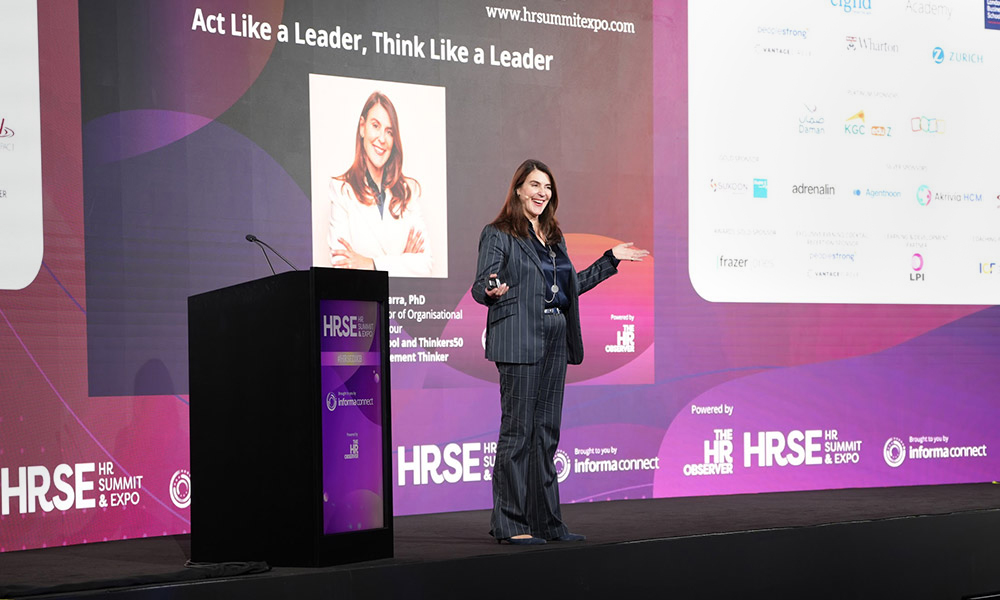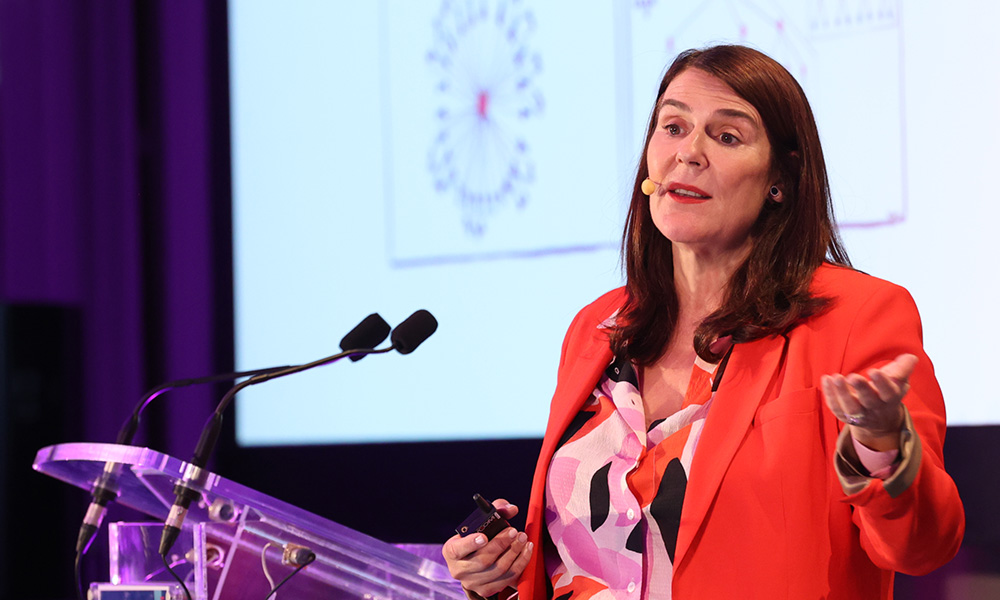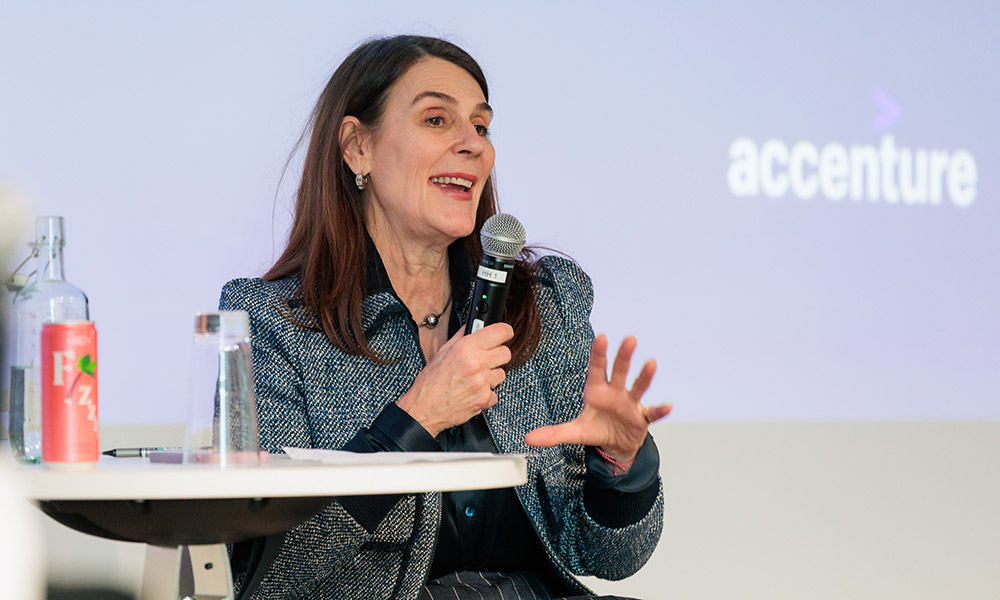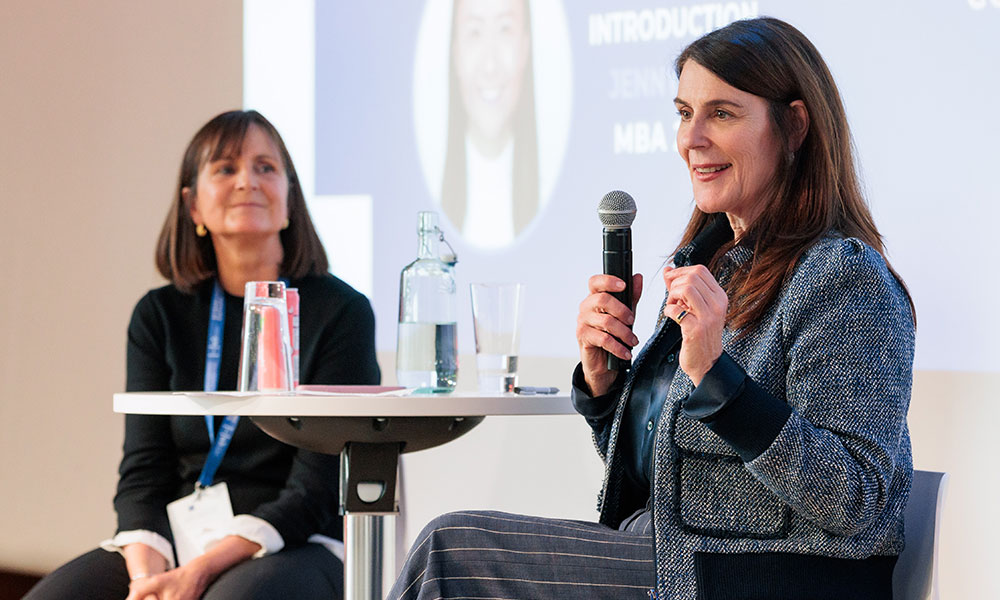Keynote topics

KEYNOTE TOPIC
How to step up to bigger leadership roles
Today’s breakneck pace of technological change has an immense impact on leaders, and as a result, on their organizations’ capacity to transform. All too often, executives remain stuck in outdated mindsets and modes of operating, even when they recognize the need to reinvent themselves in order to step up in their careers. This interactive session upends traditional, introspective advice and says act first — in order to change your way of thinking. Whether you are moving into a new role or stepping up in your current post, in this session you will learn to change through action, not reflection, and to apply a growth mindset to our own leadership capacities.
Learning objectives
- Identify how to redefine your job so that your contributions are more strategic and client-centered.
- Learn how to expand your network so that you connect to and learn from a bigger range of stakeholders inside and outside your firm.
- Understand different ways of defining authenticity in order to give yourself permission to stretch beyond your ‘natural’ leadership styles and habitual ways of contributing.

KEYNOTE TOPIC
Building a reinvention-ready career
Today’s world of work is in constant motion. Technology is transforming industries, organizations are reshaping, and more people are seeking purpose, autonomy, and meaning in their careers. As a result, we are all navigating more transitions, whether we’re actively making a change or simply sensing the need for one.
But real career change isn’t just about switching jobs. It’s a nonlinear journey of self-discovery, in which we explore new possibilities, test unfamiliar identities, and learn to thrive in uncertainty. Even positive changes can be disorienting — and that’s where resilience becomes essential.
Drawing on insights from Working Identity and my forthcoming book on reinventing longer work lives, this keynote offers practical strategies to help you stay grounded, curious, and empowered during times of professional change. Whether you’re contemplating a reinvention, expanding your portfolio, or just starting to ask ‘What’s next?’, you’ll gain tools to navigate your evolving career with clarity and confidence.

KEYNOTE TOPIC
Leadership skills for the age of AI
AI is transforming every function and industry, yet most companies still struggle to turn technological promise into business performance. The problem isn’t the tools —it’s leadership. Executives must retool themselves to align strategy, structure, and culture around intelligent systems that change how work gets done.
I have found that five ‘C’ leadership skills are vital for leading in this new era:
The five skills
- Cross-cutting: developing diverse networks and staying connected to the fast-evolving conversations about AI’s opportunities and risks.
- Culture- and organization-shaping: redesigning processes, structures, and cultures to harness AI-augmented value and modifying practices that are no longer fit for purpose.
- Collaborating: integrating AI insights into team decision-making while fostering psychological safety and intellectual candor.
- Coaching: helping people to develop themselves and build the new skills and confidence needed to work effectively with AI.
- Connecting: using AI personally and visibly to model curiosity, empathy, and continuous learning.
Developing these capabilities requires courage and openness to change — but they are what will distinguish leaders who merely talk about AI from those who turn it into lasting strategic advantage.

KEYNOTE TOPIC
Developing authentic sponsorship relationships
Getting the mission-critical roles and stepping stone assignments that pave the way to a successful career requires more than skills and drive. It requires a special kind of relationship — called ‘sponsorship’ — in which mentors goes beyond giving feedback and advice to use their influence with other senior executives to advocate for proteges and ensure that they have exposure and visibility with other top decision makers.
In this session, you will learn what sponsorship is, why it matters, and most importantly, how to cultivate mutually beneficial relationships such that, over time, your relationships are more likely to blossom into true sponsorship. Herminia and the participants will discuss the spectrum of helping relationships, ingredients of effective career conversations, how to manage universal ‘like me’ biases and how to overcome common challenges in sponsoring relationships across differences.
Live event videos
The future of work for longer lives
Aspen Forum 2025 (English language)
The spectrum of sponsorship
ICAN Women’s Leadership Conference
Is authenticity overrated?
DLD Conference
What will leadership look like in the age of AI?
WIRED Smarter
The authenticity paradox
TEDx, London Business School
Why what got you here won’t get you there
World Web Forum
Act Like A Leader, Think Like A Leader: Take your skills to the next level
London Business Forum
Act Like A Leader, Think Like A Leader
The HR Congress
Three strategies for any job transition
WOBI